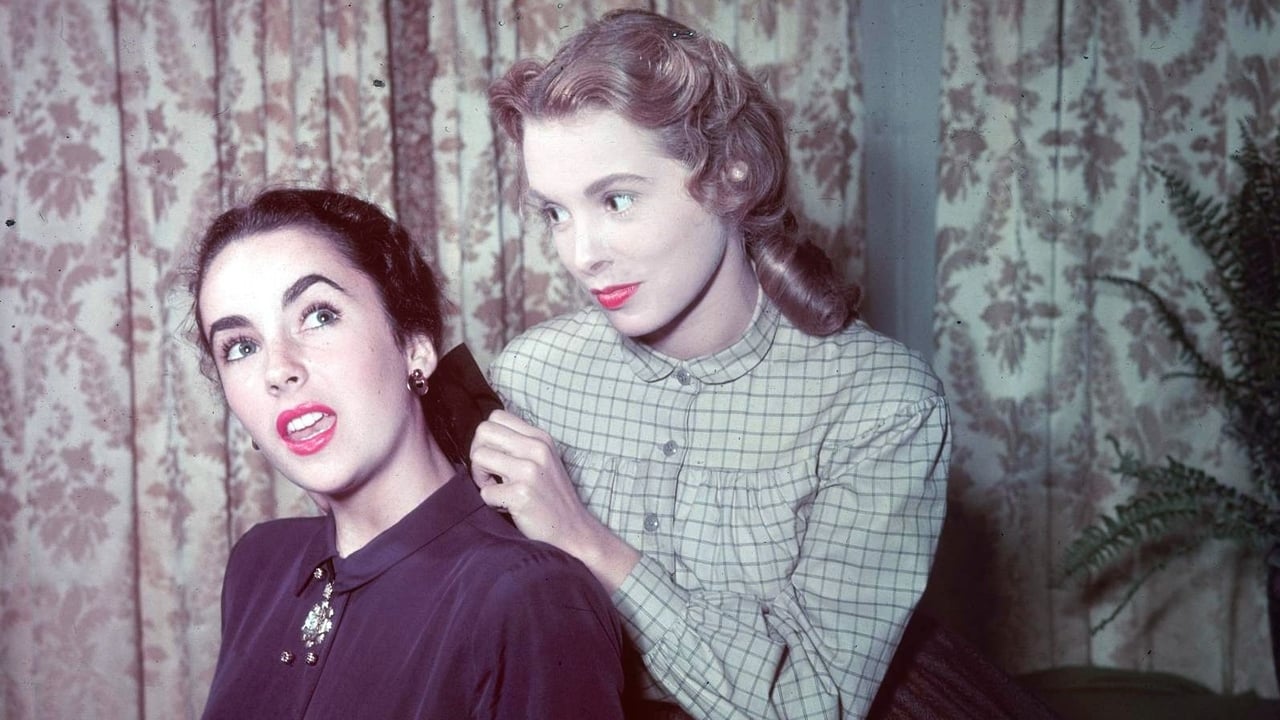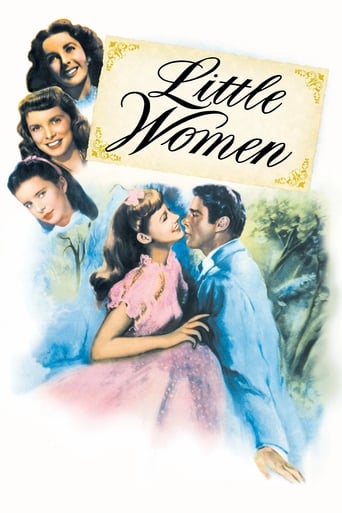

terrible... so disappointed.
... View MoreNice effects though.
... View MoreToo much about the plot just didn't add up, the writing was bad, some of the scenes were cringey and awkward,
... View MoreThe movie is made so realistic it has a lot of that WoW feeling at the right moments and never tooo over the top. the suspense is done so well and the emotion is felt. Very well put together with the music and all.
... View MoreIt's difficult to watch this version of "Little Women" without comparing it to the 1933 film starring Katherine Hepburn. One can understand why they chose to remake the film, especially since this version benefits from color film.There are other aspects of this film that compare favorably to the earlier film. Although June Allyson, as Jo, is not as convincing as Hepburn for me, her portrayal is very earnest. Other actors in the cast are noteworthy, especially Margaret O'Brien, who plays Beth, the shy musical sister. Janet Leigh and Elizabeth Taylor play the other two sisters, completing a stand-out foursome.C. Aubrey Smith also deserves recognition for his portrayal of the elderly neighbor Mr. Laurence, who befriends Beth. It is one of the warmest moments of the film.This is a wonderful coming of age story based on a classic novel.
... View MoreSuperb adaptation of Louisa May Alcott's novel. Wonderful, moving, bitter-sweet, often funny story, beautifully told. The sense of family and sweet innocence is palpable. Makes you long for simpler times.Solid direction by Mervyn LeRoy. The film moves along at a brisk pace and is constantly engaging.Great performances all round. June Allyson is superb as Jo. Elizabeth Taylor, only 16/17 years old at the time, shows the talent that would make her one of the greatest actresses of all time. Janet Leigh, in one of her earliest roles, is great as Meg. 12-year old Margaret O'Brien almost steals the show as the sweet and precocious Beth. Solid support from Peter Lawford, Mary Astor and Rossano Brazzi.0A classic.
... View MoreLittle Women (1949) - With three outstanding film versions to choose from, popular opinion may tend to slant one way or another. However, all three versions are rated very closely on IMDb. Perhaps that is a testament to the enduring and endearing story based in Louisa May Alcott's novel. I've seen all three, like elements of all three, for many years chose the 1994 as my favorite, but in recent years I've finally settled on this one as my very favorite version.The deciding factor for me is the cast. June Allyson is quite a believable tomboy strong-willed Jo, Janet Leigh is perfect as the proper and pretty Meg, Elizabeth Taylor is excellent as the haughty Amy and no one can play the sweet yet physically weak Beth like the incomparable Margaret O'Brien. Peter Lawford is such a dream as Laurie. C. Aubrey Smith as his grandfather was one of the finest actors of his day. Finally, Mary Astor is a loving and selfless Marmie. If I could only put Gabriel Byrne back in time as Professor Behr, then it would be ideal.Another factor is in this version, the sisters bicker and have their differences, but their love still shines through despite their changing circumstances. Elizabeth Taylor puts the perfect spin on Amy because she would be the prima-donna no matter what part she played. It came to her so naturally. However, this was before her career began to peak and she still had some of her "National Velvet" innocence left. She is the most likable of the three Amy's and, if you can tolerate her as a blonde, I think she's the best.It may bother viewers that Amy and Beth's ages were reversed. That is understandable. This was Hollywood in the days of the studio system and, believe it or not, Margaret O'Brien was a more bankable star and her presence and name were needed to sell tickets. Plus, no one cries on cue better than O'Brien. Allyson, too, actually.The final factor for me is the beautiful picture postcard Technicolor. It is like watching a work of art. Usually I prefer the true outdoors to a set, but these sets make the outdoors look prettier than many places on earth, so I'm very forgiving of this element and would have been especially impressed as a film-goer in 1949. Other than that, the stories are very similar. It's hard to not be partial to one, and this one does it for me.
... View MoreVery colorful film of Louisa May Alcott's classic novel about the March family girls--Jo (June Allyson), Beth (Margaret O'Brien), Amy (Elizabeth Taylor) and May (Janet Leigh). It also involves their neighbor Laurie (Peter Lawford) and Prof. Behr (Rossano Brazza).First off this is NOT a faithful adaptation of the book--the original novel runs over 500 pages so a lot was cut out. For some reason Amy (the youngest in the book) is now the second youngest with Beth becoming the youngest! The change is not needed. Also most of the cast is far too old--Allyson was playing a teenage girl and she was 32 when she did this! Taylor and Leigh (two wonderful actresses) seem totally lost in this. The picture is far too pretty also. The March family is supposed to be living in poverty--but they live in a HUGE house and all the girls have beautiful clothes on! Still, as a glossy Technicolor big budget production it works.Everything (and everybody) looks beautiful. There's always something beautiful to see on the screen. The movie moves fairly quick and there's good acting by Allyson (who captures Jo's personality beautifully), Lawford and Brazza (who, unfortunately, doesn't pop up till the last half hour). O'Brien though is perfect in every scene she's in. She has the impossible role of a saintly little girl bur pulls it off. So, as an adaptation of the book it's bad but as a movie it's lots of fun and so beautiful! I give it an 8.
... View More